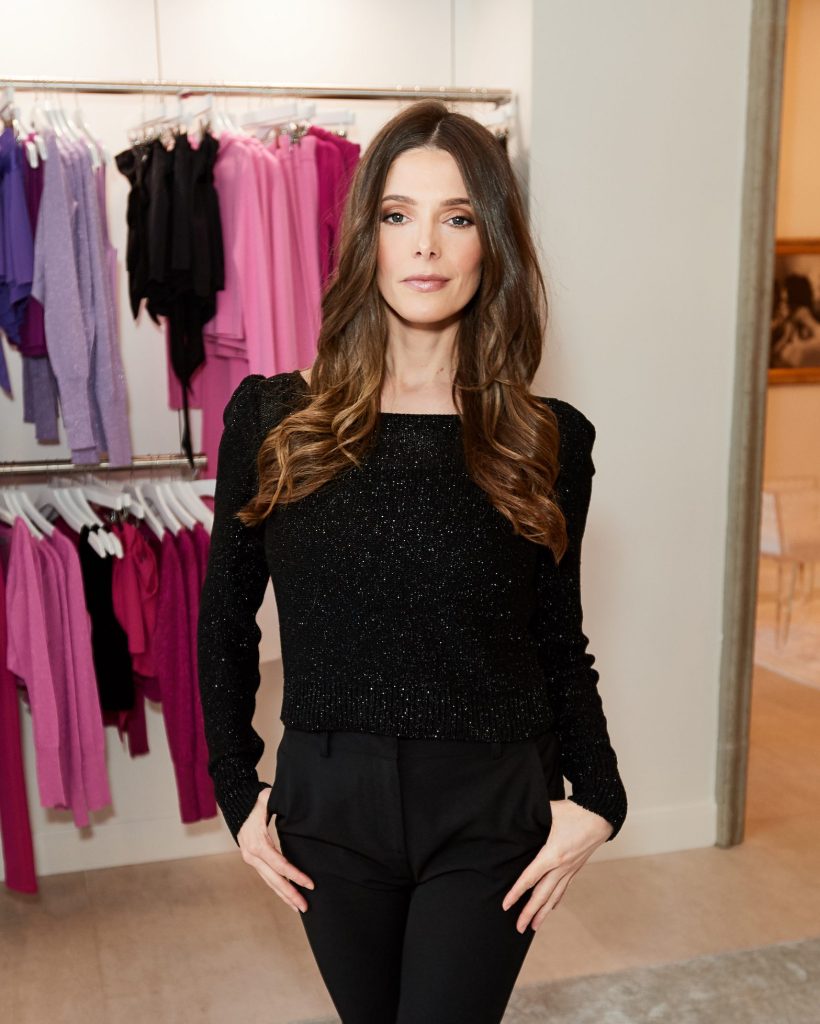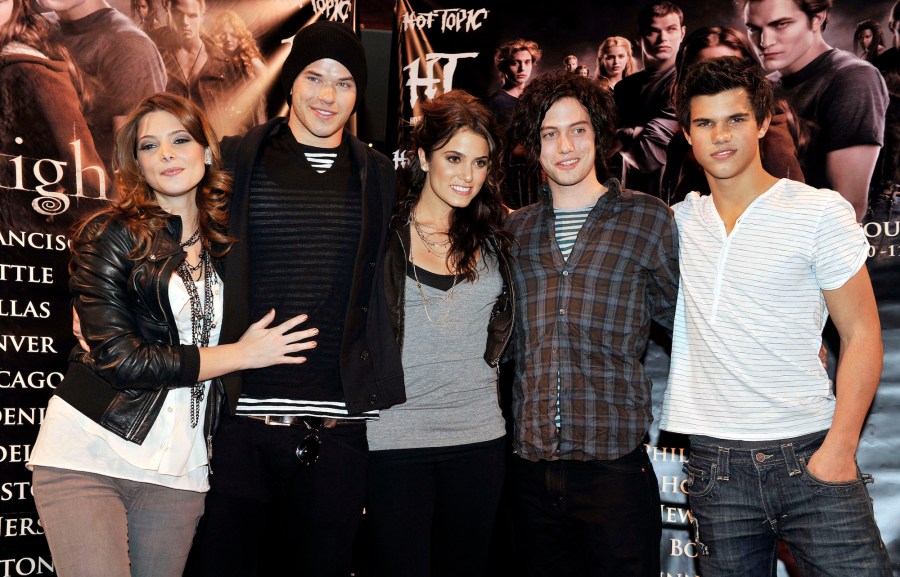
Ashley Greene is opening up about her mental health struggles — which began after Twilight’s success shot her straight into stardom.
“Initially it started with panic attacks. I didn’t recognize negative self-talk or intrusive thoughts until much later, but the panic attacks, as soon as I had my first one, I thought I was going to die,” Greene, 36, exclusively told Us Weekly while promoting her partnership with Aura Health. “It was something that I just couldn’t ignore and I could not push down. I was really good at suppressing my feelings and issues in order to get the job done or continue on. The first time I had a panic attack, it was right before I was going to do my first cover photo shoot. It was right when the press tour was happening with Twilight and I was terrified.”
Greene — who starred as fan favorite vampire Alice Cullen in all five of the Twilight films from 2008 to 2012 — noted that while she never experienced panic attacks “on set or at a photo shoot or during an interview,” she would feel the effects once she was “alone” and in “the slowdown moment.”
“I feel like I’m always [going] in order not to have to deal with things. I was always working and that was where I was kind of happy,” she explained. “And so when I finally stopped was when things really started to show themselves and rear their ugly heads. Rather than going, ‘I should go to therapy for this,’ or, ‘Maybe this is something where I should really look internally and see what the issue is,’ I kind of said, ‘Alright, I can’t feel these things.’”
Greene went to the doctor and was prescribed Klonopin “for emergencies,” which she claimed “worked for a while” but didn’t help her in “addressing what was happening underneath.” (According to the National Institute of Health, Klonopin is a benzodiazepine drug used for the acute treatment of panic disorder, epilepsy and nonconvulsive status epilepticus.)
“Then I started having intrusive thoughts and it was still manifesting and bubbling underneath the surface because I hadn’t properly dealt with it,” she continued. “I didn’t look for therapy, I wasn’t talking to people [about] my feelings, I wasn’t looking at what was causing them. I was just going, ‘Oh, I can take this pill and cover it up.’ And that was a big problem for me.”

Greene shared that many of her early coping mechanisms actually attributed to her increasing anxiety, including having “a night out” and going for “a drink” when she was feeling extra stressed. Now, however, she’s recognized how to prioritize healthy activities and make them her “baseline,” citing sleep, exercise, food and her husband, Paul Khoury.
“I’ve kind of worked through a lot of things, [where] I can start to recognize when that panic and that anxiety is coming on and that’s when I reach out to my husband because just expressing things is really helpful,” she told Us.
Greene and Khoury — who welcomed daughter Kingsley in September 2022 — are an “extremely communicative” couple, which is something the actress credits to her partner.
“For a while, in the beginning, it was really pulling teeth for him to get me to communicate these things,” she confessed. “I just felt like there was no time to pry and I had to operate on a really high level. And now years and years later, it’s gotten to a point [where] as soon as I start feeling … these things bubble up, before I get to that point, I’m like, ‘Hey, listen, I’m feeling very overwhelmed about this. These are the 90 things I have going on.’”
Greene shared that Khoury helps her “slow down” by figuring out her needs. “I feel like he’s kind of magical,” she quipped. “He’s really huge part of my mental health journey.” Khoury also knows flexibility is key — especially with a new mom.
“There are times that I, 1,000 percent, could use having him around or could use having a hug from my child and that I find that my baby and I regulate each other, but then there are times where I need a break,” Greene told Us. “I think it’s finally coming to the forefront that mothers a lot of times can get overstimulated. If I’ve been with [Kingsley] all day long, then Paul’s very aware that I just need to go to the gym or I just need to have a shower. I just need to have some alone time without any other stimulation.”
Outside of her family — and her fitness routine — Greene turns to breathwork and meditation to help her avoid reaching a “tipping point” with her anxiety. Aura Health’s app has been the perfect outlet to assist her in finding the programs she needs to keep herself feeling healthy.
“On Aura’s app particularly, I’ve really gravitated toward the affirmations. I think they are so great because we have such a habit of talking negatively to ourselves,” she gushed to Us. “So putting those affirmations in place is a really easy way to kind of reset. They also do subliminal affirmations, which I think is so incredible. You do it literally while you sleep and it makes such a huge difference when I wake up in the morning.”
Aura has been so instrumental in her mental health journey, Greene is launching her own story on the app so people can identify with her directly. (Aura’s endless library of expert-created tracks for your well-being, all taught by the world’s best coaches, therapists and storytellers.)
“One of the most incredibly terrifying things to do was to share [my] story so openly and be so vulnerable. But sharing our stories and really trying to tackle mental health head-on is so important,” she said. “I feel like there’s so much more to be done because for so long we have been told that these things are not real and that we should suppress these feelings and that we should power through, and that it’s a weakness. So you know what? I’ll be uncomfortable.”
She added: “I’m just a different human being than I was five to 10 years ago. And I’m so much happier than 10 years ago. That is what we all [deserve].”










